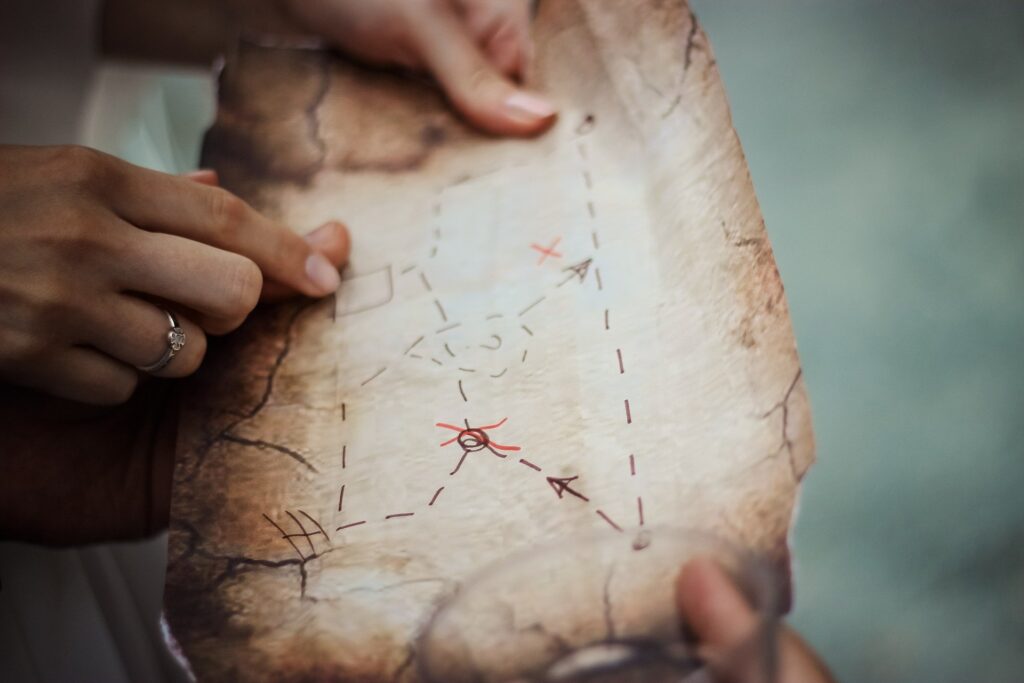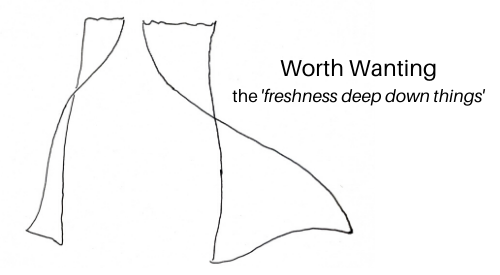
Exploring vis-a-vis encountering. I’ve used the words more or less interchangeably, but in the days to come, as I promote a new kind of conversation-convex, I’ll be using the term explorers more and more to talk about who we are, but at the same time using the term explorations to refer to encounters, which are often much less theatrical in connotation, though no less dramatic.
The word exploration is daunting enough and if we add to it the idea of adventure, then a phrase like adventure of exploration sounds like something not only remote from our everyday lives but something we want to keep away. All adventure involves some kind of risk, true, but not all risks are dangerous, threatening injury or death, and even everyday encounters can go south.
To make clear what I mean by exploration vis-a-vis encounter, let me share a bit of personal history.
In the early nineties, I developed a program I call Trex, or trail of exploration. I was a teacher of general science at the time. It was a strategy for reporting and reflecting on specific and concrete things (locales, I called them) so as to generate interesting questions for further investigation. In essence, Trex was about third-person explorations of locales.
In the early teens, I began to understand exploration differently. What was impressing me then was the power of those interactions that I came to call encounters. I was an ESL teacher at the time. This led eventually to what I’ve published on my blog since June of last year, which is, in essence, about second-person encounters with others and othernesses.
Those contrasts, locales vs others, and third-person vs second person, clarify, I hope, the differences between exploration and encounter. I take encounter to be the concept of wider scope, including and transcending that of exploration. All encounters are explorations, but with an extra and transcendent dimension.
Part of what led me to this expansive notion of encounters is perhaps best understood by reviewing another part of my personal story.
In the mid-seventies, I began to take Christianity seriously, particularly what is written in the Gospels about the life of Jesus. As time passed, I became less interested in the orthodox formulations of what that life meant, but remained fascinated by the power, perhaps transcendent, in the encounters that Jesus had, over and over, up to and including (and maybe even following) his death. Jesus strikes me as quintessentially non-boring, whereas the orthodox Christ and its theological panoply quite otherwise.
If there is a transcendent realm (and I’m primed by the avidity of my own appetite to think so), it will more likely be informal than formal, actively engaged rather than distantly imposing, more spontaneous than scripted, more full of play than pageantry, and instrumental in making our lives as lively with friendship, hospitality and exploration as Jesus’ was.
When I threw considerations of science and politics, ethics and history, art and metaphysics into my philosophical stew pot, I came up with the synthesis I’ve written about above, a sweet spot I’ve (and perhaps many) have been looking for.
Here’s what I think it tells us about who we are: we are, in our deepest, fullest selves, explorers–journeying, encounter by encounter, into the open-ended future; and it’s when we explore (or encounter) that we make dynamic contact with the transcendent.
The purpose of convex, of conversation of exploration, then is to mutually acknowledge our appetite for adventures of exploration, to stimulate one another’s explorer-minds, and to encourage one another to live beyond our lives, in livingness which outlasts life itself.
